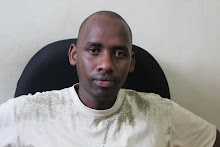Kigali: Sylvestre Munyalibanje has been accustomed to farming in the Rwandan district of Rutsiro, on the shores of Lake Kivu. But now he's facing the end of an era.The 40-year-old father of six has had almost all his land expropriated
as part of a government initiative to clear the surrounds of the lake to
protect it from water-borne pollution. In all, 364 families comprising some 1,800 people who had previously
been living or farming on the banks of Kivu left the area earlier this
month.
The lake is situated in the west of the country, on Rwanda's border with the Democratic Republic of Congo.
Each family has been offered a dairy cow to compensate them for the move. But while this may have gone part of the way to ease the difficulties of relocation, it hasn't allayed all concerns.
"I do not think that expropriation is aimed at protecting the marine ecosystem. I think that this constitutes another way of making us give up our land to wealthy people who want to conduct tourist activities on the shores of the lake," says Munyalibanje.
"We can be glad that each household has received the compensation of a dairy cow. But we do not have land where we can practice stock farming. The areas into which we have been relocated remain second-rate and (their status) uncertain."
Elias Nsanzuwera, a subsistence farmer of some 30 years, sees the relocation as a betrayal of tradition.
"We have always been the guardians of this land and we have an obligation to protect it for future generation," he says.
Some fear that the process of allocating plots of land for settlement is not be transparent.
There are also complaints that communities were not given enough time to prepare for the move, or alternatives for relocation. Government announced its intention to move people away from the lakeside two months ago.
But Christophe Bazivamo, minister of lands, the environment, forests, water and mines dismisses these allegations.
"This relocation was conducted with the support of the local authorities, and the population was sufficiently consulted for them to co-operate with this action," Bazivamo told journalists recently.
Speaking to IPS, he noted further: "We now have an extraordinary opportunity for everyone to sit at the same table and put in place a method of management where all stakeholders can have their needs met."
Bazivamo says the steps that are planned to stem pollution of the lake include separating waste water drains from storm water drains. There is also talk of a campaign to eliminate water hyacinths, which present a number of hazards - forming a mat on the surface of water that can make it unnavigable, and preventing sunlight from reaching other life forms in the water.
According to Rose Mukankomeje, director of the Rwandan Office for Environmental Protection, the Kivu initiative is a decisive step towards Rwanda achieving the seventh United Nations Millennium Development Goal (MDG) - which focuses on ensuring environmental sustainability.
The goal requires, in part, that national policies are oriented towards sustainable development, with loss of environmental resources being reversed.
Eight MDGs were agreed on by global leaders at the Millennium Summit in 2000 in an attempt to raise living standards around the world. The deadline for the goals is 2015.
"This process of relocation should be completed in a period of six months," said Mukankomeje in June, when a national environmental week was launched in Rwanda.
SOURCE: Inter Press Service (IPS)/ Aimable Twahirwa


No comments:
Post a Comment